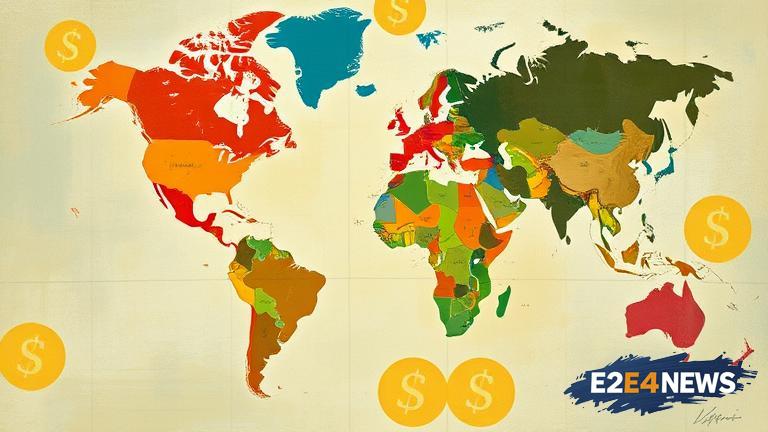The concept of free trade agreements has been widely promoted as a means to boost economic growth, increase trade, and create jobs. However, a recent study has shed light on the hidden costs associated with these agreements. The report highlights that while free trade deals may provide short-term benefits, they can also lead to significant long-term expenses that can have far-reaching consequences. One of the primary concerns is the impact on local industries, which can struggle to compete with cheaper imports. This can result in job losses, business closures, and a decline in domestic production. Furthermore, free trade agreements can also lead to a loss of government revenue, as tariffs and other trade barriers are reduced or eliminated. This can make it challenging for governments to fund public services and infrastructure projects. Additionally, the report notes that free trade deals can also have negative environmental and social impacts. For example, the increased trade in goods and services can lead to higher greenhouse gas emissions, while the exploitation of cheap labor in developing countries can perpetuate poverty and inequality. The study also highlights the issue of intellectual property rights, which can be compromised in free trade agreements. This can lead to the theft of innovative ideas and technologies, undermining the competitiveness of domestic industries. Moreover, the report emphasizes the need for greater transparency and accountability in the negotiation and implementation of free trade agreements. This includes ensuring that the interests of all stakeholders, including workers, consumers, and small businesses, are taken into account. The study also recommends that governments conduct thorough impact assessments and engage in public consultations before signing free trade agreements. In conclusion, while free trade agreements can provide some benefits, it is essential to consider the hidden costs and potential risks associated with these agreements. By doing so, governments and policymakers can work towards creating more equitable and sustainable trade policies that benefit all members of society. The report’s findings have significant implications for trade policy and highlight the need for a more nuanced approach to free trade agreements. It is crucial to recognize that free trade is not a one-size-fits-all solution and that each agreement must be carefully tailored to the specific needs and circumstances of the countries involved. Ultimately, the goal of trade policy should be to promote economic growth, social justice, and environmental sustainability, rather than simply pursuing free trade for its own sake. The study’s conclusions are particularly relevant in today’s globalized economy, where trade agreements are becoming increasingly complex and far-reaching. As the world becomes more interconnected, it is essential to prioritize cooperation, fairness, and transparency in trade policy. By working together, governments and stakeholders can create a more just and equitable trade system that benefits all countries and communities. The report’s findings also underscore the importance of considering the human impact of trade policy, including the effects on workers, consumers, and local communities. It is essential to ensure that trade agreements are designed to promote the well-being of all people, rather than just the interests of corporations and wealthy elites. In the end, the key to successful trade policy is to strike a balance between economic growth, social justice, and environmental sustainability. By prioritizing these values, governments and policymakers can create a more equitable and prosperous world for all. The study’s recommendations are a crucial step towards achieving this goal, and it is essential to implement them in a timely and effective manner. The world is watching, and it is time to take action to create a better future for all. The report is a wake-up call for governments and policymakers to rethink their approach to trade policy and to prioritize the needs and interests of all stakeholders. It is a call to action to create a more just and equitable trade system that benefits all countries and communities. The time for change is now, and it is essential to work together to create a brighter future for all. The study’s findings are a significant contribution to the debate on trade policy, and they highlight the need for a more nuanced and equitable approach to free trade agreements. The report’s conclusions are a reminder that trade policy is not just about economics, but also about people and the planet. It is essential to prioritize the well-being of all people and the health of the planet in trade policy, rather than just pursuing economic growth for its own sake. The study’s recommendations are a crucial step towards achieving this goal, and it is essential to implement them in a timely and effective manner. The world is waiting, and it is time to take action to create a better future for all.
